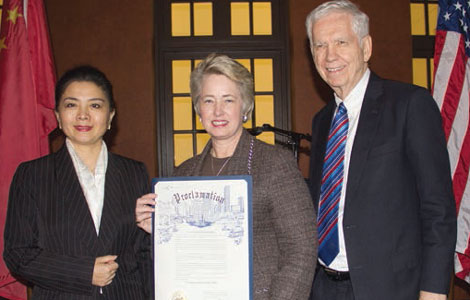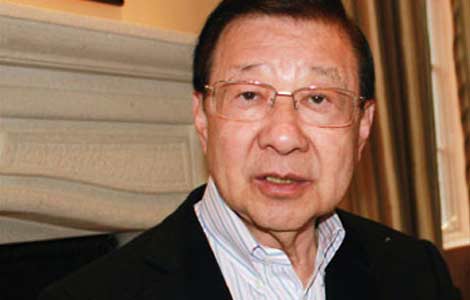China sees growth potential for more trade with Brazil
Updated: 2014-03-02 17:10
By ZHANG FAN in Beijing (China Daily Latin America)
|
||||||||
Brazil remains a very important and attractive market with large potential for Chinese companies, despite its increasing trade restrictions and protection policies, said a Chinese official recently.
"But we really hope the Brazilian government can better respect the rules of market economy and the regulations of the World Trade Organization, in order to provide us a more fair environment for trade and investment," said Lei Hong, the deputy inspector of the International Liaison Department of the China Council for the Promotion of International Trade.
A WTO report released on Feb 17 says Brazil was the world’s most protectionist country last year, with 39 new anti-dumping cases.
Its trade protectionism policies have led to protests from many WTO member countries, including the US and EU.
China, which is Brazil’s largest trading partner, saw more than 10 kinds of products affected under Brazil’s anti-dumping investigations last year.
"On the one hand, there are more and more Chinese companies learning to use legal measures to protect their interests, which we find to be a positive development," said Lei.
On the other hand, she said, the Council for Promotion of International Trade encourages these Chinese companies to change their trade competition pattern from relying on low profit and prices to brand building and improving the quality of the products.
"Brazil is the biggest country in Latin America with a large population, which means a huge domestic market, and we still hold high expectations for this land," she added.
China-Brazil trade increased from about $5 billion in 2003 to $90.2 billion in 2013. With such rapid growth, Brazil outpaced China’s other trade partners; Brazil now ranks as China’s ninth-largest trading partner.
However, trade between the two countries concentrates mainly on limited products, such as iron, soybeans and oil, which the Brazilian government finds unsatisfying.
"We have noticed the situation, and there is indeed lots of potential for China-Brazil trade yet to be developed," Lei said. "But the two markets lack information."
China also is trying to diversify its exports to Brazil, because many of China’s leading industries, such as electronics, furniture and farm machinery, have not entered this market.
Qihoo 360 Technology, for example, one of China’s biggest Internet software and service companies, has expressed a strong preference for entering the Brazilian market, according to the Council for Promotion of International Trade.
"To meet these companies’ requirements, we established the China-Latin America Business Council in 2007 and hold a summit conference every year as a platform to strengthen communication," said Lei, who is also the general secretary of the council.
"We also provide legal and related assistance for companies in need," she added.
About 700 Chinese companies have joined the council so far, ranging from state-owned companies such as China National Petroleum Corporation to small and mid-sized companies.
About 75 percent of these member companies have already undertaken business in Brazil.

 Rio drops protests for Carnival
Rio drops protests for Carnival
 Houston-China bonds deepen with new group
Houston-China bonds deepen with new group
 Citizens mourn victims of Kunming terror attack
Citizens mourn victims of Kunming terror attack
 Putin justifies potential military move in Ukraine
Putin justifies potential military move in Ukraine
 Photos: Kunming rail station violence
Photos: Kunming rail station violence
 Successful businessman gives back to the community
Successful businessman gives back to the community
 Tea with heart
Tea with heart
 Wanting Qu: Chinese-Canadian singer-songwriter launches tour
Wanting Qu: Chinese-Canadian singer-songwriter launches tour
Most Viewed
Editor's Picks

|

|

|

|

|

|
Today's Top News
China to severely punish terrorist attackers
Ukraine mobilizes after Putin's move
Travel the world via the Times Show
China: no one is above the law
China urges solution in Ukraine
Beijing vows tough stance on smog
28 dead in Kunming rail station violence
China rejects US GM corn shipments
US Weekly

|

|






